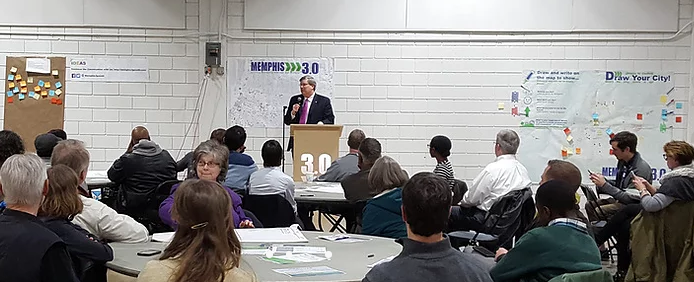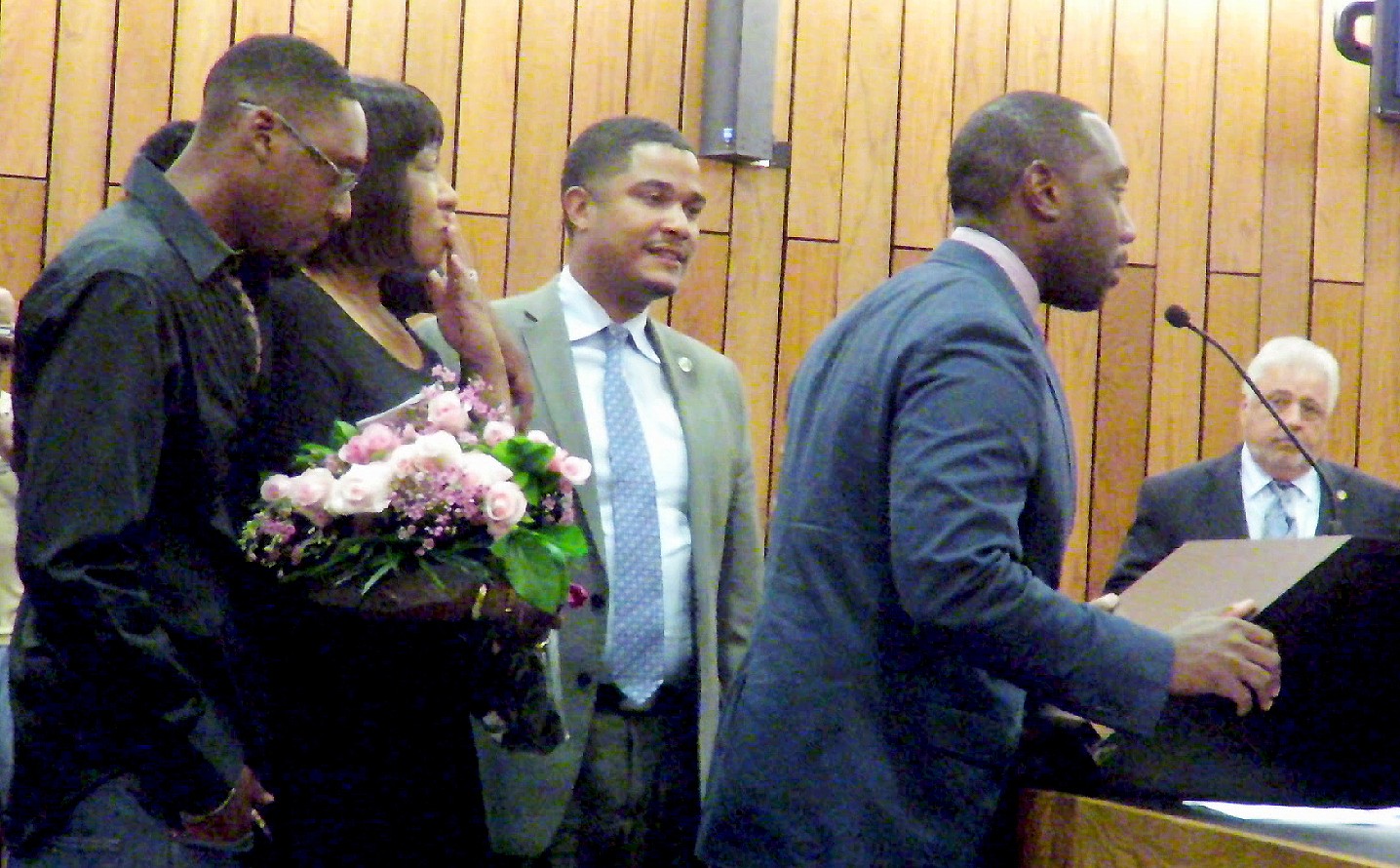
Some Memphis City Council members raised questions Tuesday about the Memphis 3.0 plan, a comprehensive plan that will guide the city’s investments and developments for the next 20 years.
City officials presented the plan to a council committee Tuesday ahead of the first of three votes on an ordinance approving the plan in two weeks.
Councilwoman Cheyenne Johnson said she was “impressed” with the plan, but still had several lingering questions.
“What’s in here that might not be fully disclosed because of how people might interpret what’s actually written?” Johnson asked.
[pullquote-1]
Johnson also inquired about the 15,000 Memphis residents said to have participated in creating the 3.0 plan.
“Who were those 15,000 individuals?” she said. “How many of those were developers or builders? What are the classifications of the 15,000 which still represents less than 3 percent of the population?
”Do you think this is an adequate number to set out a plan that will be in place for the next 20 years?”
Ashley Cash, Memphis’ comprehensive planning administrator, said the city “made every effort” to have broad participation from the public, which meant developers, stakeholders, and residents were involved.
Johnson also wanted to know if the plan will guide equitable investments in the city and if the efforts will be balanced across all Memphis neighborhoods.
John Zeenah, who heads the Memphis and Shelby County Division of Planning and Development said the anchors, or places identified in the plan for further development, are “evenly distributed” around the city.
Councilman Reid Hedgepeth expressed concerns about the unintentional consequences the plan could have.
“There’s a lot of things that I have heard from developers, from builders, and from people saying, ‘Wait, I’ve got to do what?’” Hedgepeth said. “These are things that I didn’t know. How can you assure us when we approve these 400 pages it’s not going to be similar to the UDC (Unified Development Code) and we had unintended consequences when we approved it.”
Josh Whitehead with the city/county Office of Planning and Development told Hedgepeth that the plan will be updated and amended frequently to keep it “relevant.”
Council members also asked for the “big bullet points” from the 400-page document, highlighting how things will change once the plan takes effect.
The council will take its first of three votes on an ordinance to adopt the plan in two weeks.

Memphis 3.0 planning meeting
The council also passed an ordinance that enables the city and county to appoint a fiscal agent to manage its pre-K fund.
This move comes as an $8 million grant that funds 1,000 pre-K seats in the county is set to run out in June. Now, the city and county are on track to fund those 1,000 seats plus an additional 1,000 beginning this fall.
The city/county joint ordinance paves the way for a fiscal agent to be appointed. The agent would be responsible for managing the fund, bringing in private dollars, and creating a high-quality pre-K program.
The Shelby County Commission will vote on a similar ordinance at its March 25th meeting.

The council also approved a resolution supporting three cannabis-related bills introduced by Tennessee lawmakers. The bills deal with decriminalization of certain amounts, medical marijuana, and taxation of cannabis.
The resolution, sponsored by council members Berlin Boyd and Martavius Jones, passed with a 5-4 vote.
Councilman J. Ford Canale, one of the members voting no, said he supports legalizing medical marijuana, but not decriminalization of the drug for other uses.
Boyd said that decriminalizing small amounts of cannabis would help the number of Memphians who have felony charges because of marijuana possession.

A vote to impose a plastic bag surcharge at certain retail stores was delayed until May, as state legislators are working on a bill to prohibit local governments from putting those types of fees in place.
The fee is meant to curb plastic bag usage to reduce litter, especially in the city’s waterways, Boyd, who is sponsoring the resolution, has said.
Tuesday Boyd said the fee would be 4 cents, instead of the 7 cents he first proposed last year. If approved, it would take effect January 2020.

 Jackson Baker
Jackson Baker 